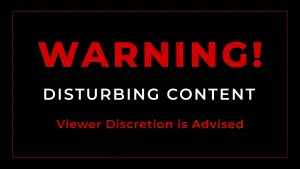Problem Solving
Problem-solving is an essential skill for children and teens to develop. It allows them to navigate challenges and make informed decisions.
Problem-solving is a crucial skill that children and teens need to develop to navigate the challenges they face in their everyday lives. Whether it be academic, social, or emotional issues, effective problem solving is essential for personal growth and success.
Importance of Teaching Problem-Solving Skills
Teaching children and teens how to problem solve not only helps them overcome obstacles, but also builds their confidence and resilience. By learning how to identify problems, analyze possible solutions, and make informed decisions, young individuals are better equipped to tackle challenges both in school and in their personal lives. Problem solving skills also help foster creativity, critical thinking, and adaptability – essential qualities for success in the 21st century.
Common Challenges Faced by Children and Teens
Children and teens face a myriad of challenges on a daily basis, ranging from academic struggles to social conflicts and emotional distress. These challenges can often feel overwhelming and lead to feelings of frustration and helplessness. Common obstacles include difficulty managing time, poor organization skills, lack of effective communication, and low self-confidence. By teaching problem solving skills, young individuals can learn how to effectively address these challenges and build the resilience needed to overcome them.
Strategies for Developing Problem Solving Skills
There are several strategies that can help children and teens develop their problem solving skills. Encouraging them to break down complex problems into smaller, more manageable tasks, teaching them how to brainstorm and evaluate potential solutions, and providing opportunities for hands-on practice are all effective methods. It is important to create a supportive and nurturing environment where mistakes are seen as opportunities for learning and growth, rather than failures.
Encouraging Critical Thinking in Young Minds
Critical thinking is a key component of effective problem solving. Encouraging children and teens to think critically about the world around them, ask questions, and consider multiple perspectives can help them develop a deeper understanding of complex issues and make more informed decisions. By fostering a culture of curiosity and open-mindedness, parents and educators can help young individuals become more independent and resourceful problem solvers.
Hands-On Activities for Problem Solving
Hands-on activities are a fun and engaging way to help children and teens practice their problem solving skills. These activities can range from puzzles and brainteasers to group projects and real-world challenges. By providing opportunities for collaborative problem solving, young individuals can learn how to work effectively with others, communicate their ideas, and think creatively. Hands-on activities also help make problem solving more tangible and relevant to everyday life.
Role of Parents and Educators in Problem Solving
Parents and educators play a crucial role in supporting the development of problem solving skills in children and teens. By modeling effective problem solving behaviors, providing guidance and encouragement, and creating a safe space for young individuals to take risks and learn from their mistakes, adults can help nurture a growth mindset and resilience. Collaboration between parents and educators is also key in reinforcing problem solving skills across different settings, such as at home and in the classroom.
Building Resilience Through Problem Solving
Problem solving is not just about finding solutions to specific issues, but also about building resilience and emotional intelligence. By teaching children and teens how to navigate challenges with a positive attitude, cope with setbacks, and bounce back from failure, adults can help them develop the resilience needed to thrive in a rapidly changing world. Problem solving skills also teach young individuals how to manage stress, regulate their emotions, and maintain a sense of optimism in the face of adversity.
Teaching Decision Making and Problem Solving
Decision making is a critical component of problem solving, as it involves choosing the best course of action from among several alternatives. By teaching children and teens how to weigh the pros and cons of different options, consider potential consequences, and make informed decisions, adults can help them become more confident and independent problem solvers. Decision making skills also help young individuals develop a sense of agency and responsibility for their actions, which is essential for personal growth and success.
Addressing Emotional Aspects of Problem Solving
Problem solving can be a deeply emotional process, as it often involves dealing with uncertainty, frustration, and fear of failure. It is important for adults to acknowledge and address these emotional aspects when teaching problem solving skills to children and teens. Encouraging open communication, providing emotional support, and helping young individuals develop coping strategies can help them manage their emotions and stay focused on finding solutions. By creating a supportive and empathetic environment, adults can help young individuals build the emotional resilience needed to tackle challenges head-on.

Thanks for reading Problem Solving
[paypal-donation]
